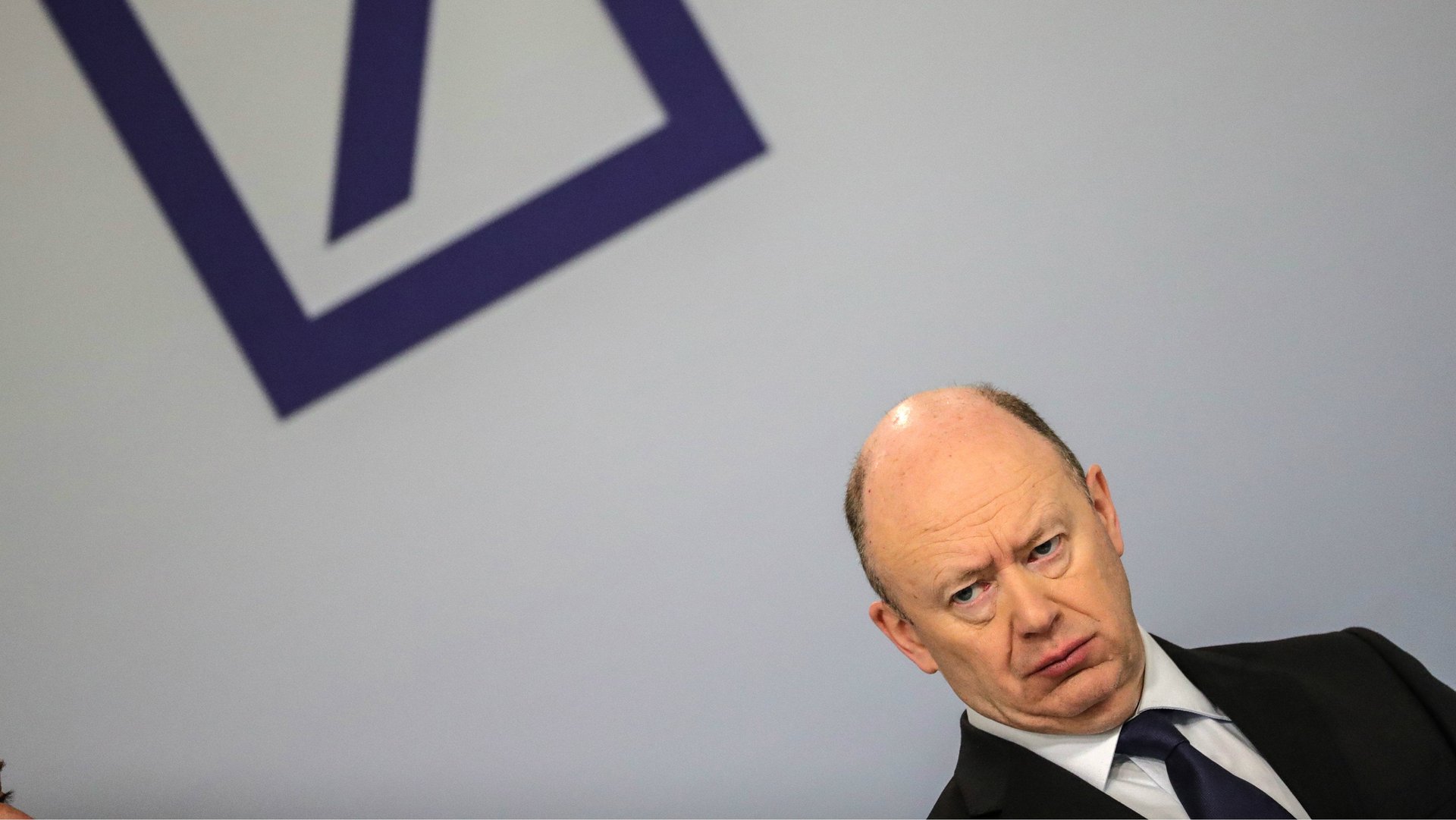Un-loved Deutsche Bank wants to be Europe’s champion
Deutsche Bank says it wants to be Europe’s champion for investment banking. For now, the German lender, whose share price has lagged just about every other big bank, doesn’t look like the hero the continent might wish for.


Deutsche Bank says it wants to be Europe’s champion for investment banking. For now, the German lender, whose share price has lagged just about every other big bank, doesn’t look like the hero the continent might wish for.
Good news has been hard to come by: Deutsche Bank has been beset by fines for misconduct, declining revenue, and criticism that it hasn’t cut costs fast enough (paywall). Whether, and how much, to downsize investment banking operations is also a growing question for executives like Deutsche Bank CEO John Cryan. While investment banking accounts for more than half of the company’s revenue, its executives acknowledged in a conference call today (Feb. 2) that last year was one of the worst for the division.
Trading hasn’t been kind to most any of the big banks. With stock and bond markets eerily placid, trading is making a lot less money than it used to. Some firms have diversified—Morgan Stanley has pacified investors by making what looks like a smart bet on wealth management. Goldman Sachs has been less successful.
Deutsche Bank has not pacified investors. Shares fell sharply after the bank said revenue declined last quarter to €5.7 billion ($7.1 billion), the lowest since 2010. Like many financial institutions, Deutsche Bank’s profits took an accounting hit from the US tax overhaul. (Tax reform should, however, be a benefit for the foreseeable.)
If it’s so hard to make money from trading, why stick with it? Deutsche Bank has retreated from some of these activities to the benefit of its American rivals, which picked up market share and have become increasing dominant, according to data from Coalition, an analytics company. Deutsche Bank pointed out that it’s among the few European banks that break into the upper ranks.
Deutsche Bank executives say Europe needs its investment bankers, and it’s an issue that’s all the more pressing as the UK, whose capital is the world’s financial hub, moves closer to leaving the EU bloc. The German bank wants to be the main financial contact for continental European institutions as well as foreigners looking to do business in the EU. Deutsche Bank argues that non-European banks might abandon the region in a crisis, which is something the Frankfurt-based company wouldn’t, or couldn’t, do.
Deutsche Bank’s CEO says he understands the need to find a more stable way to make money through things like lending and mortgages, and says other matters like an initial public offering of its wealth management unit are progressing. Deutsche Bank overtook Goldman (pay wall) when it comes to advising European mergers and acquisitions in the first half of 2017.
Things could turn around, making traders and investment bankers stars again: Bond yields are picking up in the US, and just about every major economy is growing at the same time, which signals policy makers will have to make adjustments that filter through market prices and drive up trading. But right now, money managers who invest in banks appear pessimistic about a coming revival.